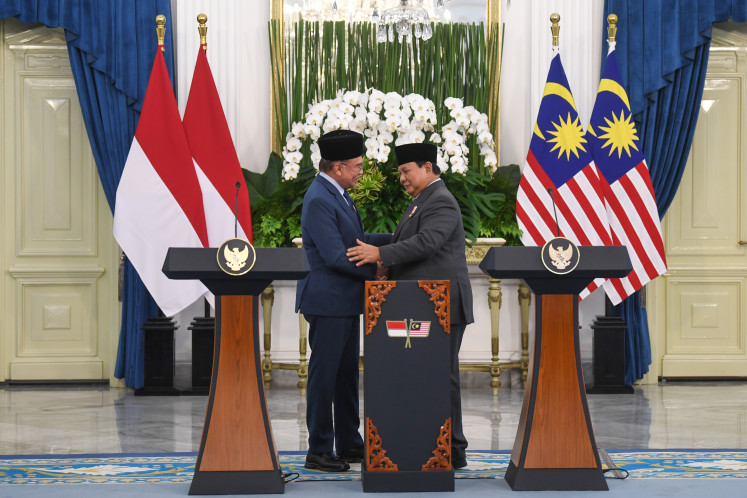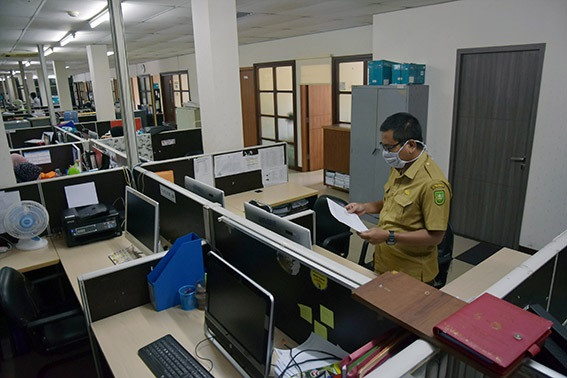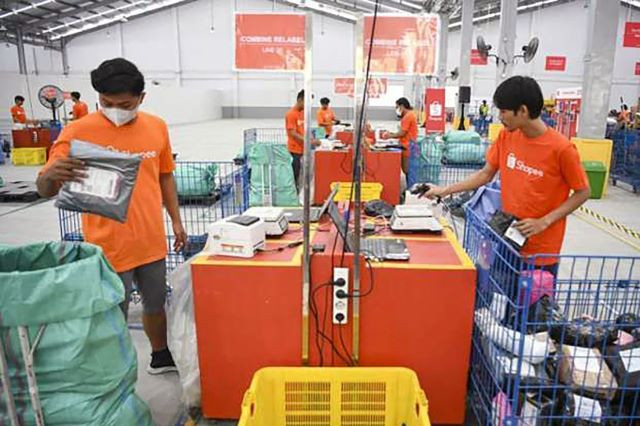Popular Reads
Top Results
Can't find what you're looking for?
View all search resultsPopular Reads
Top Results
Can't find what you're looking for?
View all search resultsEditorial: Idul Fitri a la Indonesia
When Idul Fitri arrives, Indonesian Muslims will celebrate the end of the Ramadhan fasting month in their own tradition and style, which seems to differ significantly from the way it is celebrated in the Middle East, the birthplace of Islam
Change text size
Gift Premium Articles
to Anyone

W
hen Idul Fitri arrives, Indonesian Muslims will celebrate the end of the Ramadhan fasting month in their own tradition and style, which seems to differ significantly from the way it is celebrated in the Middle East, the birthplace of Islam.
Islam has evolved and been adapted to the culture and environment of the people in Southeast Asia. This is 'Islam Nusantara', or Indonesian Archipelagic Islam, a term used by progressive Muslims in response to claims by conservatives that some of these practices are 'un-Islamic'.
The Idul Fitri celebrations are the clearest example of Islam Nusantara at work. The Indonesian tradition is here to stay, and if anything becoming stronger. More and more people head to their home villages for the holiday, which has officially been extended to five days. The long holiday helps the government better manage the exodus from cities to villages.
More people go to cemeteries to pay homage to their ancestors, a practice loathed by strict Sunni Muslims but defended by the practitioners as a way to connect with their roots. People continue the celebration after Idul Fitri with halal bi-halal, an Arabic term that is rarely used in the Middle East, essentially meaning getting together to renew and replenish bonds with relatives and friends.
Southeast Asia also has its own special Idul Fitri greetings. Most people would say in Arabic 'Minal aidzin wal faidzin' (Pray to Allah that we are among those returned to purity and victory), or the simpler Indonesian expression 'Maaf lahir batin' (Forgive me physically and spiritually).
Muslim conservatives say these expressions are wrong because they are not used in Saudi Arabia. Instead, they advocate the expression 'Taqobbalallahu minna waminkum' (May Allah accept my and your deeds).
A kind of culture war is going on among Muslims in Indonesia, with conservatives trying to change Islam Nusantara into something more akin to Arabic Islam. Some of the more strict, if not radical and extreme aspects of the religion are also creeping in.
Indonesia is an open society, which throughout the centuries has absorbed all the cultures, traditions and religions that have come its way. It is not a static society and its cultures are constantly evolving. The Arabization campaign has already had an impact, as seen in the growing number of women wearing headscarves.
But lest we forget, our culture is simultaneously exposed to influences from the West, China, Korea and India. Our people know what to absorb and what to discard. That has been the case in the past, and that remains the case today. Indonesia is an open market place for ideas and cultures. The nation is all the richer for that.
For now and the foreseeable future, Indonesians will continue to celebrate Idul Fitri the way we have been doing for generations. Well, perhaps we can embrace Arabic traditions a little more and eat more dates since our markets are already flooded with the sweet palm fruit.
On that note, in the best of Indonesian tradition, we wish all our readers 'Selamat Idul Fitri, maaf lahir batin.'









